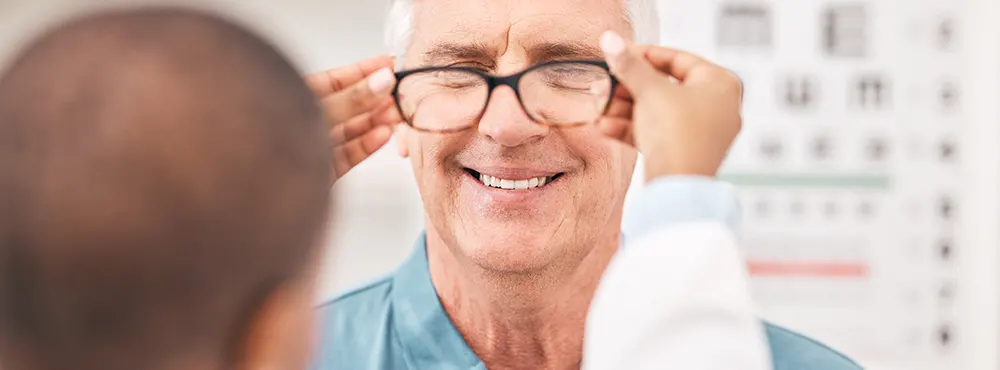
 Offers
Offers-
 Account
Account
-
0
 Favorite
Favorite
-
0
 Basket
Basket



In the way that you would visit your local GP for an illness or health concern, it's equally important to see an optician or eye care specialist if you are experiencing any problems with your vision or general eye area. It’s vital to go for routine eye tests even if you aren't experiencing issues with your eyesight or have been using precision lenses like the Oasys Acuvue.
For adults under 40 years old, it is recommended to see an optician for an eye test every two years, unless advised sooner by your eye care professional. People over 70 years old, should have eye tests yearly and sooner if advised to do so. Children under 16 years old should have their eyes tested yearly and more frequently if advised by their optician or GP.
So, what happens in an eye test?
At the start of your examination, your optometrist will ask for the reason of your visit. Here you should explain your symptoms and mention any problems that you are experiencing with your eyes, or whether you are simply there for a routine check-up.
The optometrist will examine your eyes both inside and outside. This requires you to keep your eyes open and still, in order for a thorough examination to be performed.
A special torch, called an ophthalmoscope, will be shone into your eye through the pupil to examine its interior. This enables the optometrist to study the internal structures of the eye in detail and test your pupil reflexes.
If you require a contact lens fitting, extra tests will be carried out for this.
Remember to take your glasses with you during your eye test, since your vision will be checked with and without them in. Three types of vision - distance, near and intermediate - will be assessed and the optometrist will perform a series of tests to measure the type and extent of any problem with your vision.
You will be given a choice of different lenses and the eye specialist will ask you to choose the one that enhances the quality and clarity your vision.
Once the eye test is complete, your optometrist will explain their findings and observations, detailing any special requirements that you may have. This is when you can ask any questions and discuss the best form of vision correction to suit your needs and lifestyle.
Your optometrist will also provide you with a date for your next eye test and may refer you to your doctor or hospital if you require medical attention.
If you have any questions surrounding your eye health, book an eye test today.